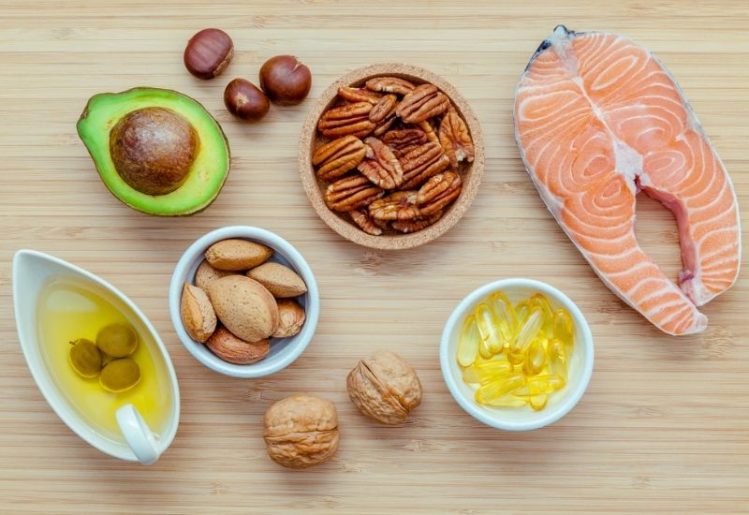In today’s hectic workplace, it is easy to understand how some workers get burned out on the job. While the occasional bout of fatigue or lack of motivation is generally not something to become overly concerned about, the issue of burnout syndrome is something to keep on your radar. A recent study provides insight into the benefits of mindfulness for burnout syndrome, helping to give stressed workers direction for treatment. Here is what you need to know about burnout syndrome, its symptoms and how the art of practicing mindfulness and other tips can help you to stave off this serious health issue.
What is Burnout Syndrome?
 Many people throw the term “burned out” around without knowing that burnout syndrome it is a serious mental health issue that impacts workers in many professions. While there are no official clinical diagnosis parameters used to define burnout syndrome, this condition is now widely recognized as a consequential mental wellness concern that can lead to significant health issues.
Many people throw the term “burned out” around without knowing that burnout syndrome it is a serious mental health issue that impacts workers in many professions. While there are no official clinical diagnosis parameters used to define burnout syndrome, this condition is now widely recognized as a consequential mental wellness concern that can lead to significant health issues.
Dealing with burnout is more than just feeling tired or bored with your job. The syndrome can lead to a host of short-term and long-term health conditions if you are not proactive about treating it.
Risk Factors and Signs of Burnout Syndrome
While no profession is immune from feeling the effects of burnout syndrome, there are certain career paths that are more susceptible to this problem. People who work in naturally high-stress jobs, such as doctors, firefighters and nurses, may experience a higher risk of burnout syndrome than those in less stressful positions.
Although there are a host of small symptoms that accompany burnout, people experiencing this syndrome will generally feel exhausted. This can take the form of physical or emotional exhaustion. A lack of day-to-day energy is another common thread among people suffering from burnout syndrome.
Feeling alienated from work and a general attitude of pessimism surrounding your job may be another symptom that you are at risk of developing burnout syndrome. Once you start feeling emotionally distant from a job you once loved, it is important to consider that you may be facing a serious issue that you need to address.
Lastly, people who are experiencing burnout syndrome begin to show reduced performance on the job. Eventually, this lapse in performance can spill over to your personal life, complicating the issue even further.
Benefits of Mindfulness for Burnout
So where does mindfulness come in when it comes to providing a treatment option for burnout syndrome? To understand the benefits of mindfulness for burnout syndrome, you need to understand more about what mindfulness is and how you can cultivate this state of mind.
Simply defined, “being mindful” means that you are actively in the present, paying attention to what is going on around you and being attentive to your own feelings. Rather than dwelling on the past or thinking about the future, being mindful means that you are living fully in the present.
A recent study out of the Ohio State University is helping researchers to understand how mindfulness can help to prevent and treat burnout syndrome. Participants in the study completed a Mindfulness in Motion (MIM) intervention program lasting for eight weeks. The purpose of the program was to encourage resiliency and reduce stress among healthcare workers.
After completing the program, researchers noted a noticeable decrease in perceived stress and inflammation in the participants. In addition, the participants also reported better sleep habits and a more positive level of work engagement. The results demonstrated that burnout, perceived stress and resilience were all improved up to a full year after the completion of the intervention. This revelation gives credence to the belief that intentional mindfulness can significantly improve the outlook for those at risk of developing burnout syndrome.
Additional Ways to Protect Against Burnout
While practicing mindfulness is a powerful tool in the fight against burnout syndrome, it does not need to be the only tool in your arsenal. Here are additional ways that you can reduce the odds that you become a victim of burnout syndrome.
Improve Sleep Habits
The amount and quality of sleep that you get can have a profound impact on your goal to reduce the risk of burnout syndrome. Most adults should aim to get around eight hours of sleep per night in order to function at optimal levels.
Take Supplements
The use of a targeted supplement has also been shown to reduce the odds of developing burnout syndrome. A supplement containing L-tryptophan, 5-HTP, vitamin B3 and vitamin B6 has been shown to be the ideal combination to support the healthy serotonin levels needed to combat burnout syndrome.
Practice Self-Care
 You should never be too busy to practice self-care. Whether it be taking a long nap, spending a day at the spa or hanging out with friends, doing what makes you happy can go a long way in helping you to avoid burnout syndrome.
You should never be too busy to practice self-care. Whether it be taking a long nap, spending a day at the spa or hanging out with friends, doing what makes you happy can go a long way in helping you to avoid burnout syndrome.
Move Your Body
There is no doubt that exercise delivers a wide array of health benefits, including the mental boost needed to reduce stress and burnout. You should aim to get at least 30 minutes of moderate-intensity exercise five days per week.
Do not let your job control your mental and emotional health. Understanding burnout syndrome and how you can avoid it is one of the best things that you can do for your overall wellness.
 While certain bacteria are harmful to your health, there are also strands of bacteria that are beneficial to your health. These helpful types of bacteria thrive in the intestines, and they form a community known as the
While certain bacteria are harmful to your health, there are also strands of bacteria that are beneficial to your health. These helpful types of bacteria thrive in the intestines, and they form a community known as the  Essentially,
Essentially,  You do not have to be a health nut to know that omega-3 fatty acids are one of the most important nutrients that you can give your body. But what exactly are these fatty acids and how do they benefit your body?
You do not have to be a health nut to know that omega-3 fatty acids are one of the most important nutrients that you can give your body. But what exactly are these fatty acids and how do they benefit your body? While nearly all seafood contains omega-3s, some sources are more nutrient dense than others. Salmon is a particularly rich source of omega-3 fatty acids. Herring, sardines and shellfish such as lobster and scallops also supply this nutrient. Next time you make a sandwich, consider spreading a tablespoon of mayonnaise on the bread to increase your intake of omega-3 fatty acids.
While nearly all seafood contains omega-3s, some sources are more nutrient dense than others. Salmon is a particularly rich source of omega-3 fatty acids. Herring, sardines and shellfish such as lobster and scallops also supply this nutrient. Next time you make a sandwich, consider spreading a tablespoon of mayonnaise on the bread to increase your intake of omega-3 fatty acids. Burnout syndrome
Burnout syndrome It is easy to think that you are alone in the fight if you are not willing to talk about your emotions. Talking about your feelings and putting them out there will provide a necessary emotional release. Along the way, you may find different ways to deal with your workplace struggles.
It is easy to think that you are alone in the fight if you are not willing to talk about your emotions. Talking about your feelings and putting them out there will provide a necessary emotional release. Along the way, you may find different ways to deal with your workplace struggles. Although in general, inflammation is a healthy response to infection or injury, chronic or long-lasting inflammation can eventually become detrimental to your health.
Although in general, inflammation is a healthy response to infection or injury, chronic or long-lasting inflammation can eventually become detrimental to your health. While all plant-based foods make better eating options, these particular foods provide specific
While all plant-based foods make better eating options, these particular foods provide specific 
 Technology can present practical solutions for sharing Thanksgiving in a time of social distancing. Reduce feelings of isolation or loneliness by spending time together via Zoom, perhaps even sharing a holiday meal or dessert together online or getting together after the big meal to chat over coffee. You may even find that, without the usual hustle and bustle of meal prep for a crowd, you actually share more quality time than usual with relatives and friends. Make sure that
Technology can present practical solutions for sharing Thanksgiving in a time of social distancing. Reduce feelings of isolation or loneliness by spending time together via Zoom, perhaps even sharing a holiday meal or dessert together online or getting together after the big meal to chat over coffee. You may even find that, without the usual hustle and bustle of meal prep for a crowd, you actually share more quality time than usual with relatives and friends. Make sure that